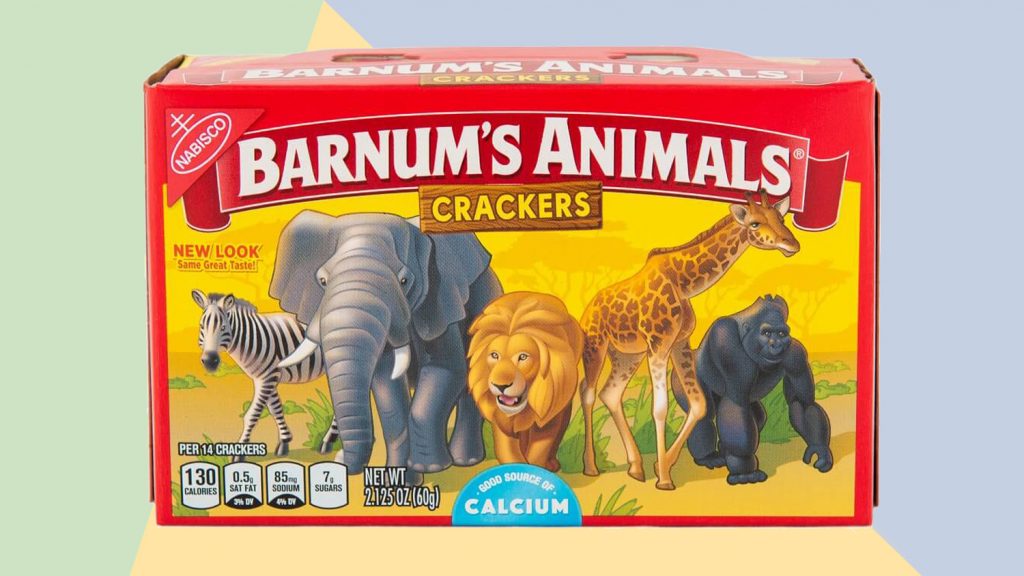After more than a century behind thick, black bars, the lion, gorilla, elephant, zebra, and giraffe on the packaging of Nabisco’s famous Barnum’s Animal Crackers are finally free.
The iconic snack box that come in a circus boxcar design with a string handle, has featured circus animals since 1902 when Nabisco renamed the brand “Barnum’s” after the famous circus troupe.
But the cracker animals have apparently left the circus for greener pastures. A sanctuary, perhaps.
“The brand felt it was the right time to make a change,” Kimberly Fontes, a Mondelez spokeswoman told the Chicago Tribune.
The move comes after discussions with PETA (People for the Ethical Treatment of Animals), the world’s largest animal rights group, although Nabisco hasn’t fully credit PETA for the decision to move away from the bars.
“We’re delighted,” PETA spokesman Ben Williamson said Tuesday. “We’re celebrating the redesign just as we celebrated the end of the circus.”

When Nabisco first switched to the cage design, circuses were leaders in the entertainment industry; traveling from town to town and country to country, the planet was a veritable criss-cross of circuses bringing “exotic” wild animals to small and big towns alike where people had only ever heard of animals like lions and elephants, perhaps glimpsing them in a grainy newspaper photo.
Once billed as the “Greatest Show on Earth,” Barnum and Bailed joined the Ringling Bros. circus in 1919 and for nearly a century drew crowds of thousands to its big tents across the globe. But animal rights groups like PETA have long pressured consumers to opt for more ethical forms of entertainment. Circuses, zoos, and marine mammal parks have all come under scrutiny in recent years with groups protesting and petitioning to much success. Ringling Bros. Barnum and Bailey is no longer operational; the company ceased performances in 2017 due in large part to declining ticket sales.
Circuses have been called out for immense animal cruelty, confinement, and exploitation. Animals are often beaten, starved, and even drugged to perform. When not on stage for a few brief moments a night, the animals typically spend the rest of their time locked in small cages.
“Society at large no longer accepts beating, shocking, prodding, neglecting, or chaining up animals for fleeting moments of entertainment,” PETA said in a statement.
“People are staying away from animal circuses in droves,” Williamson said. “They won’t tolerate seeing animals abused for some form of historic amusement, and we’re glad that marketing efforts are now catching up to that reality.”


